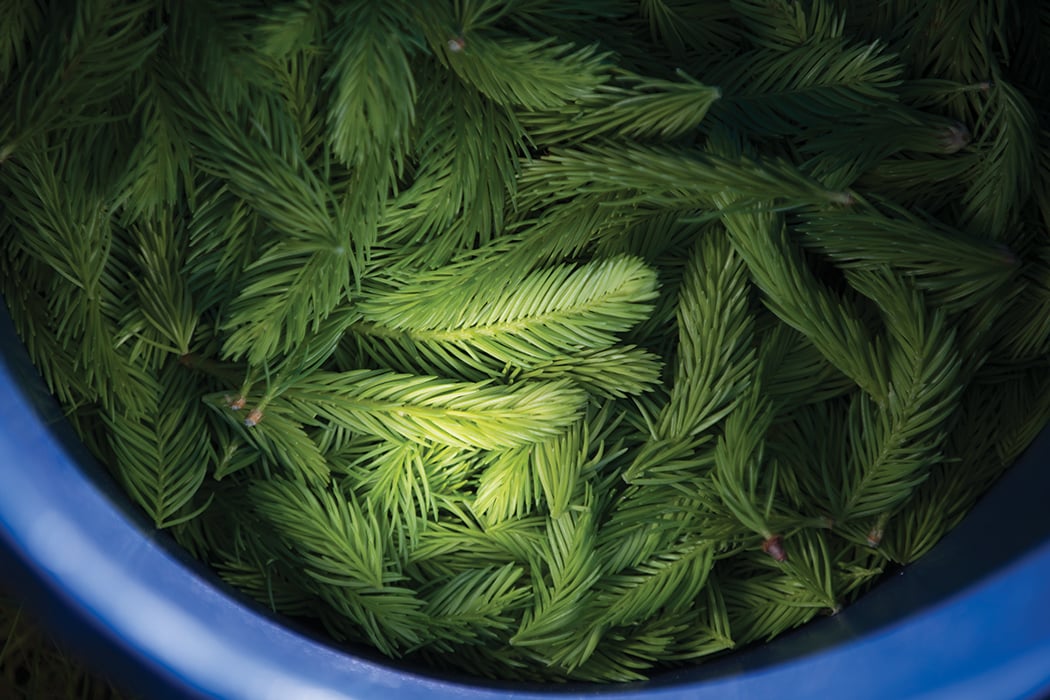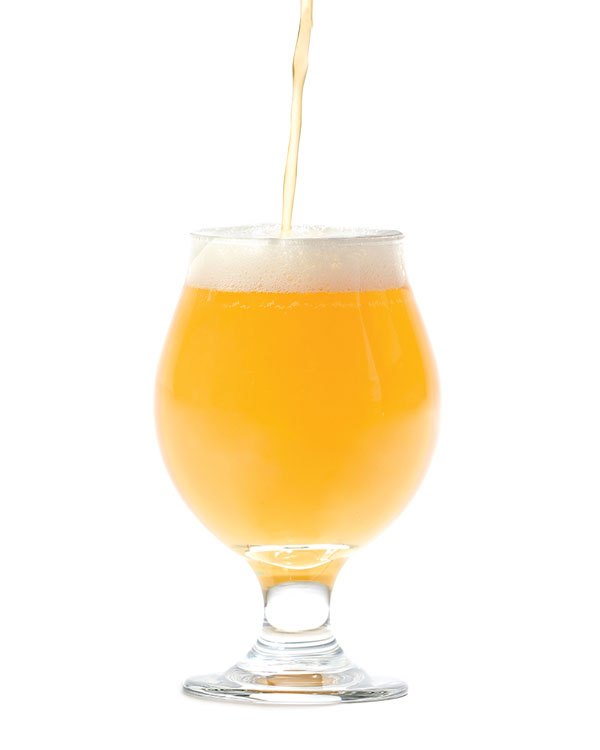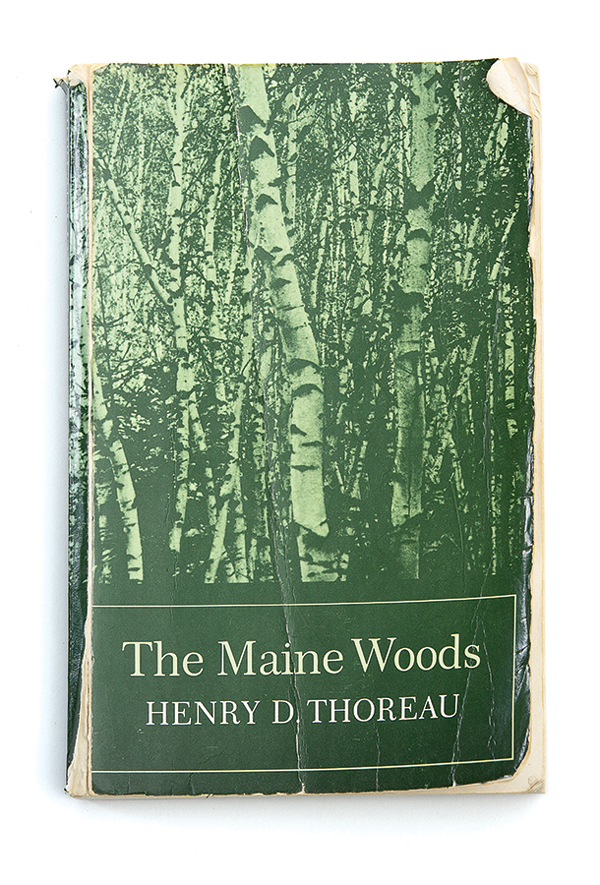By Will Grunewald
Photographs by Kevin Bennett
[cs_drop_cap letter=”O” color=”#000000″ size=”5em” ]n a warm Saturday afternoon this spring, a small crowd gathered at the edge of a parking lot in the University of Maine’s Demeritt Forest, in Orono. They swatted mosquitos, grabbed beers from a big blue cooler, and tramped off through knee-high grass to a grove of red and Norway spruces. Then, everyone started snapping off the trees’ light-green new-growth tips, dropping sprig upon sprig into buckets and sacks.
Young spruce needles are rubbery soft, the stems twist without snapping, and if you rub a spruce tip between your palms, you get a bright, almost candied scent. Use several dozen pounds of spruce tips in brewing, and you get a beer that captures those same piney notes — the promise of beer is what brought out the volunteer harvesters in Orono.

A few years back, UMaine School of Forest Resources profs Dan Hayes and Aaron Weiskittel started kicking around an idea to team up with a local brewer to create a spruce beer, and this year was their second working with Marsh Island Brewing. Among their fellow pickers: Catherine Chan, a grad student who uses hyperspectral imaging to study plant health; Jeremy Pontes, a local beer fan who’d otherwise have been mowing his lawn; and Rick England, Marsh Island’s brewery manager.

Spruce harvesting traces to precolonial times, when Native Americans made evergreen teas to ward off scurvy in winter, when fruits and vegetables were scarce (the needles contain vitamin C, it turns out). Explorers and settlers copied, and resinous quaffs, alcoholic and not, were soon common on the high seas and in the backwoods. Any number of evergreens would do the trick, but in Maine, spruce was abundant. And although mature branches give an unpleasantly woody taste, today’s brewers can be choosier than their forebears, what with scurvy in the rearview, and wait for the tastier spring growth.
Still, not everyone loves drinking eau de tree. “It’s a polarizing style of beer,” Marsh Island head brewer Clay Randall admitted, taking a break from picking. Initially, he was wary to attempt a spruce beer, but he’s glad he did. “The first time we added the tips, the brewery smelled like a Yankee Candle shop had exploded,” he recalled. “I thought, ‘Yep, that’s gonna work.’”
Spruce Juice, Pouring This Summer
Green Growth
Marsh Island Brewing
2 Main St., Orono. 207-866-1277.
Greenwarden
Banded Brewing
32 Main St., Building 13-W, Ste. 102, Biddeford. 207-602-1561.
Kawatokup
Lubec Brewing Company
41 Water St., Lubec. 207-733-4555.
Woodlot Scott
2 Feet Brewing
80 Columbia St., Bangor. 207-573-1979.
Odd Wood
Odd Alewives Farm Brewery
99 Old Rte. 1, Waldoboro. 207-790-8406.
Spruce Tip Logger
Urban Farm Fermentory
200 Anderson St., Portland. 207-773-8331.
Spruce Tooth
Black Pug Brewing Company
30 Bath Rd., Brunswick. 207-272-5356.
(Plus a yet-unnamed late-summer brew from Lewiston’s Baxter Brewing Co., dropping around Labor Day.)
Transcendent Suds
At a homestead near Millinocket, Henry David Thoreau came across spruce beer, then rhapsodized about its bracing wondrousness.





